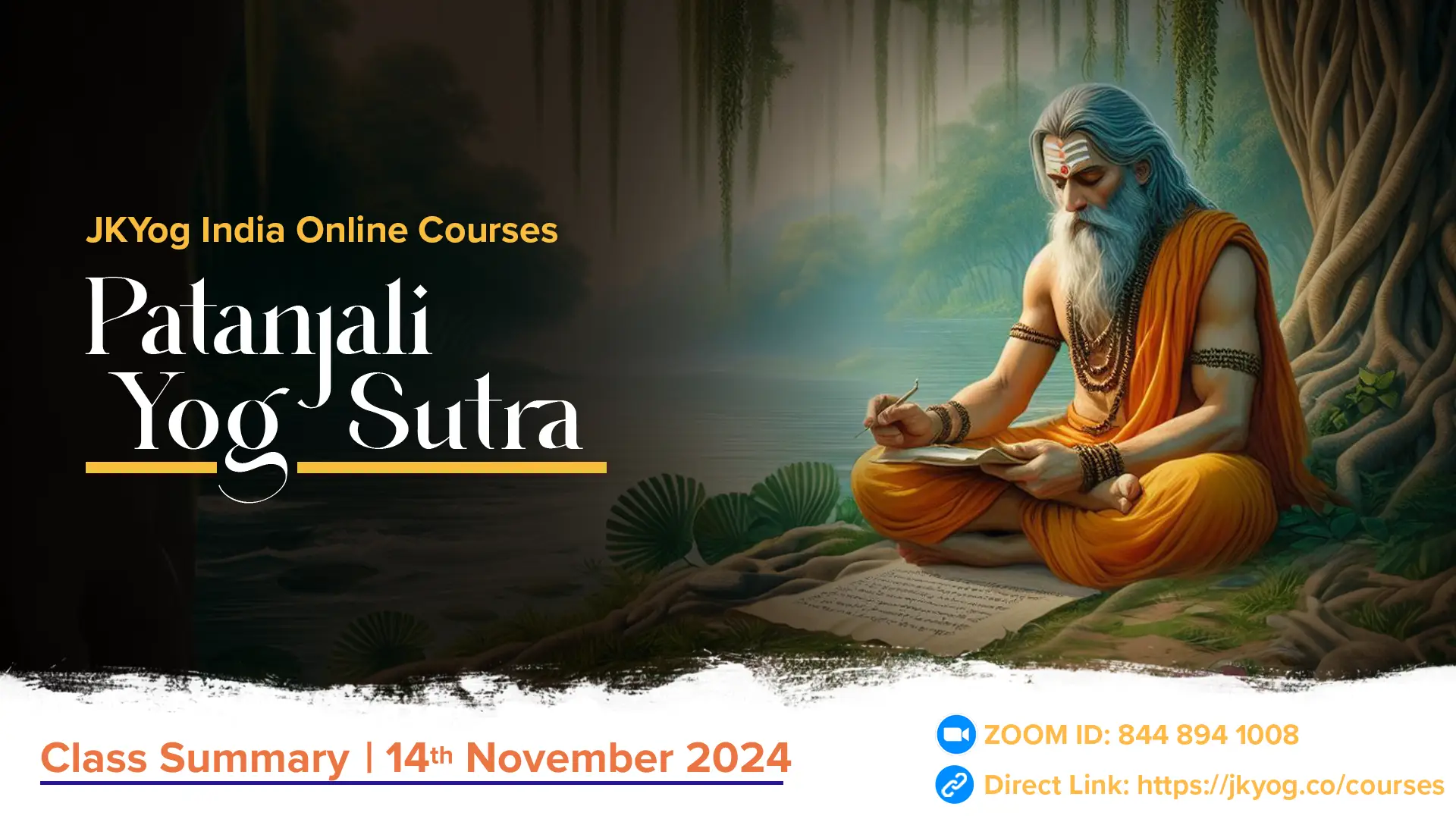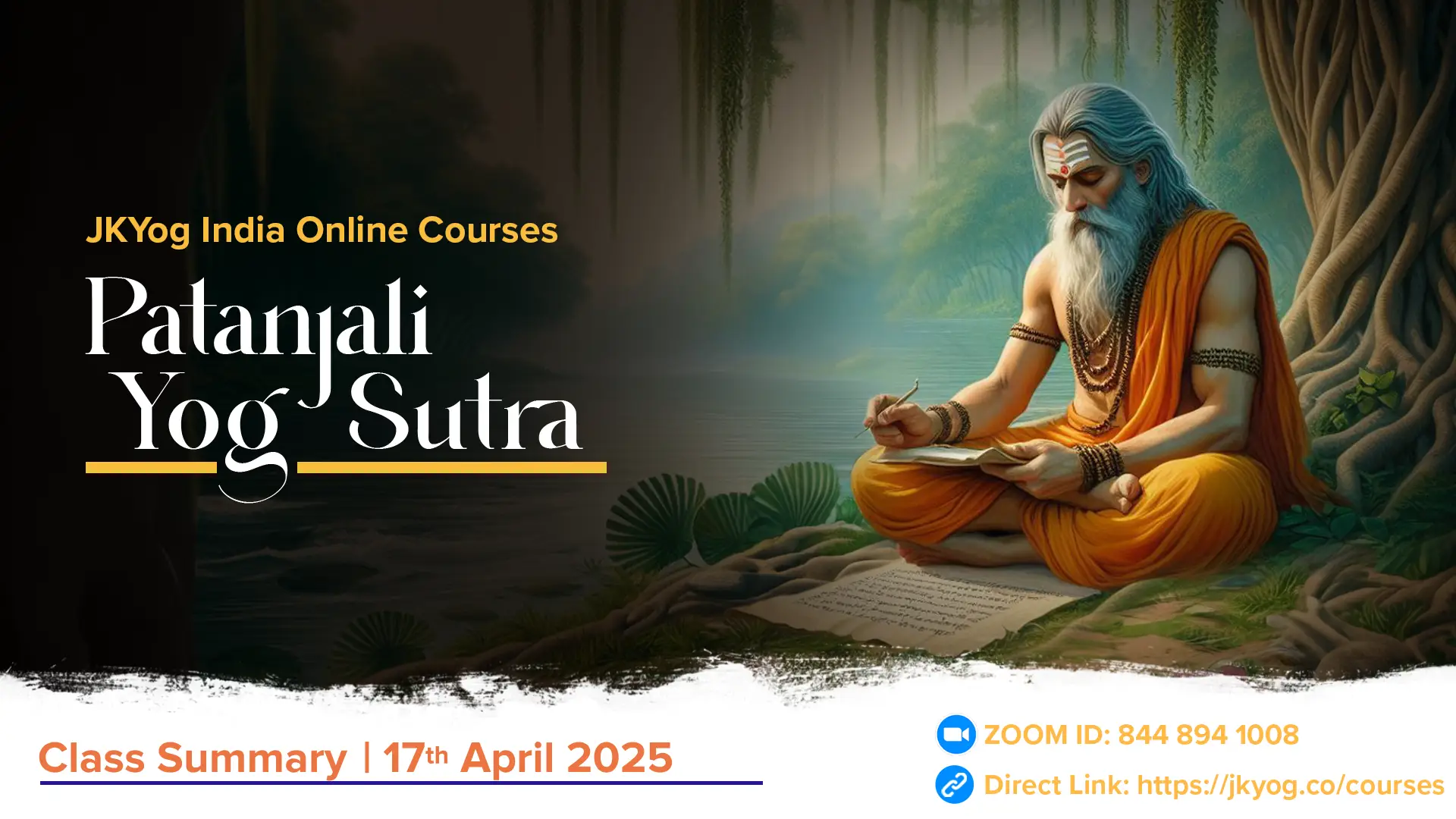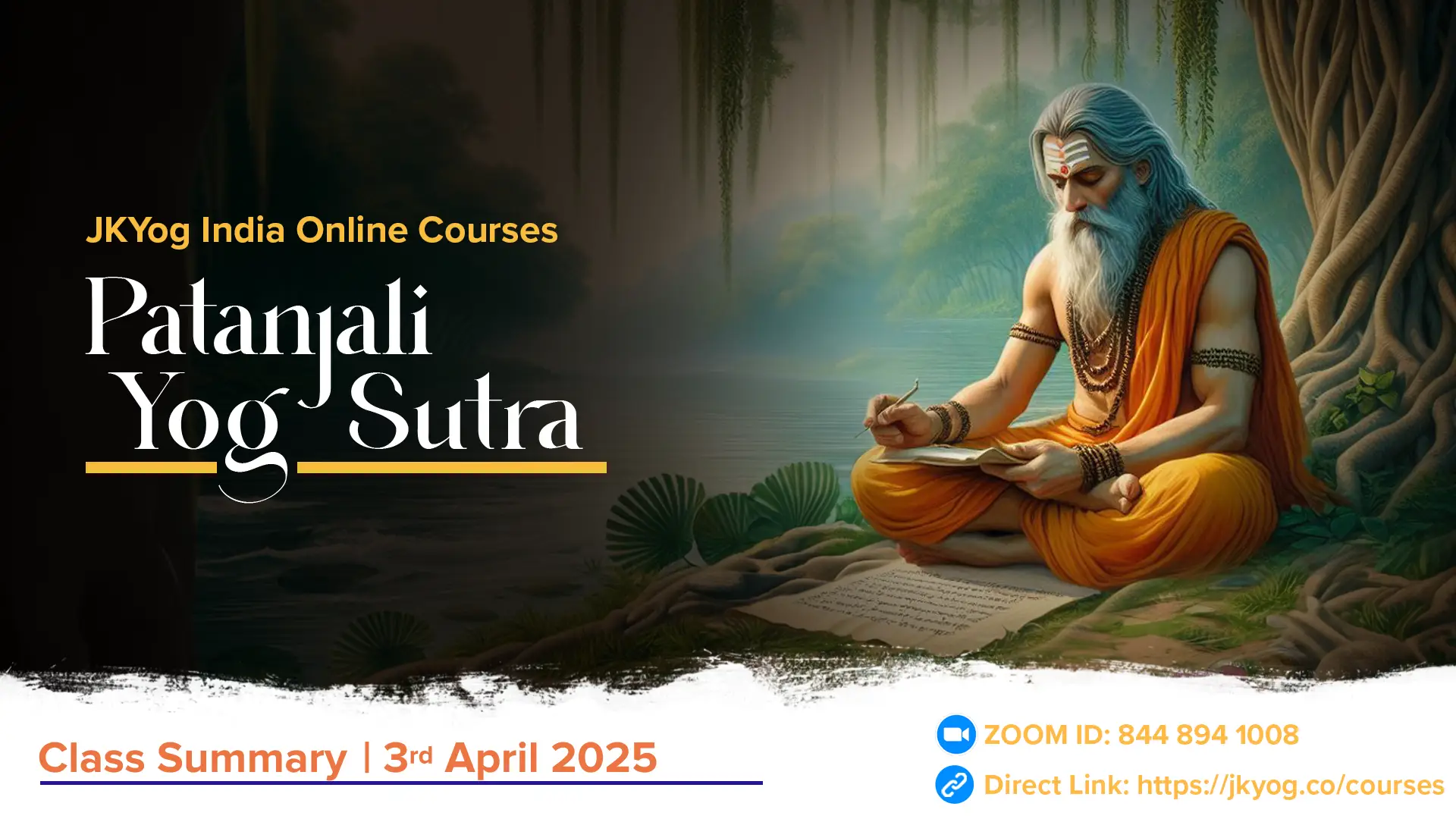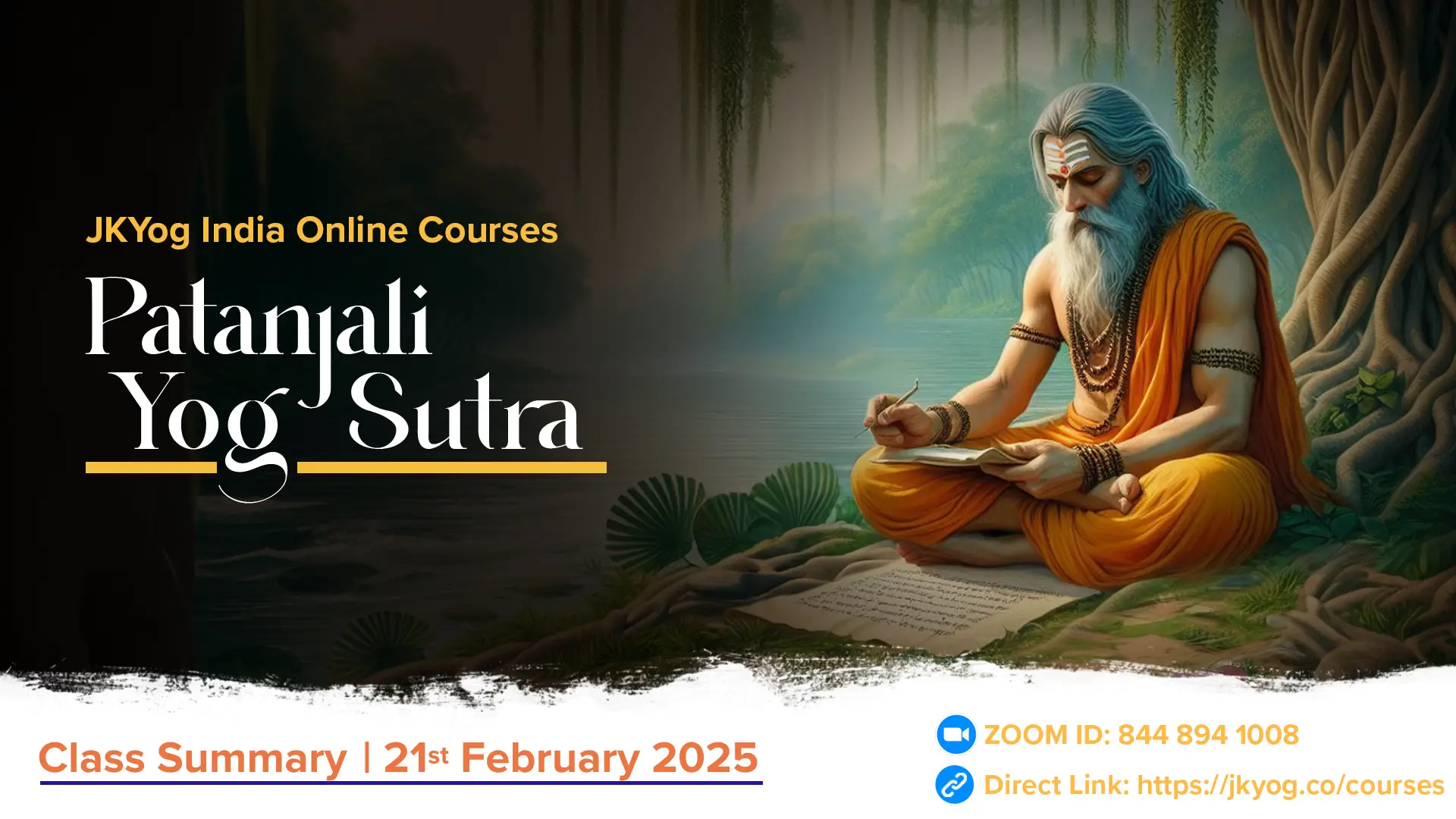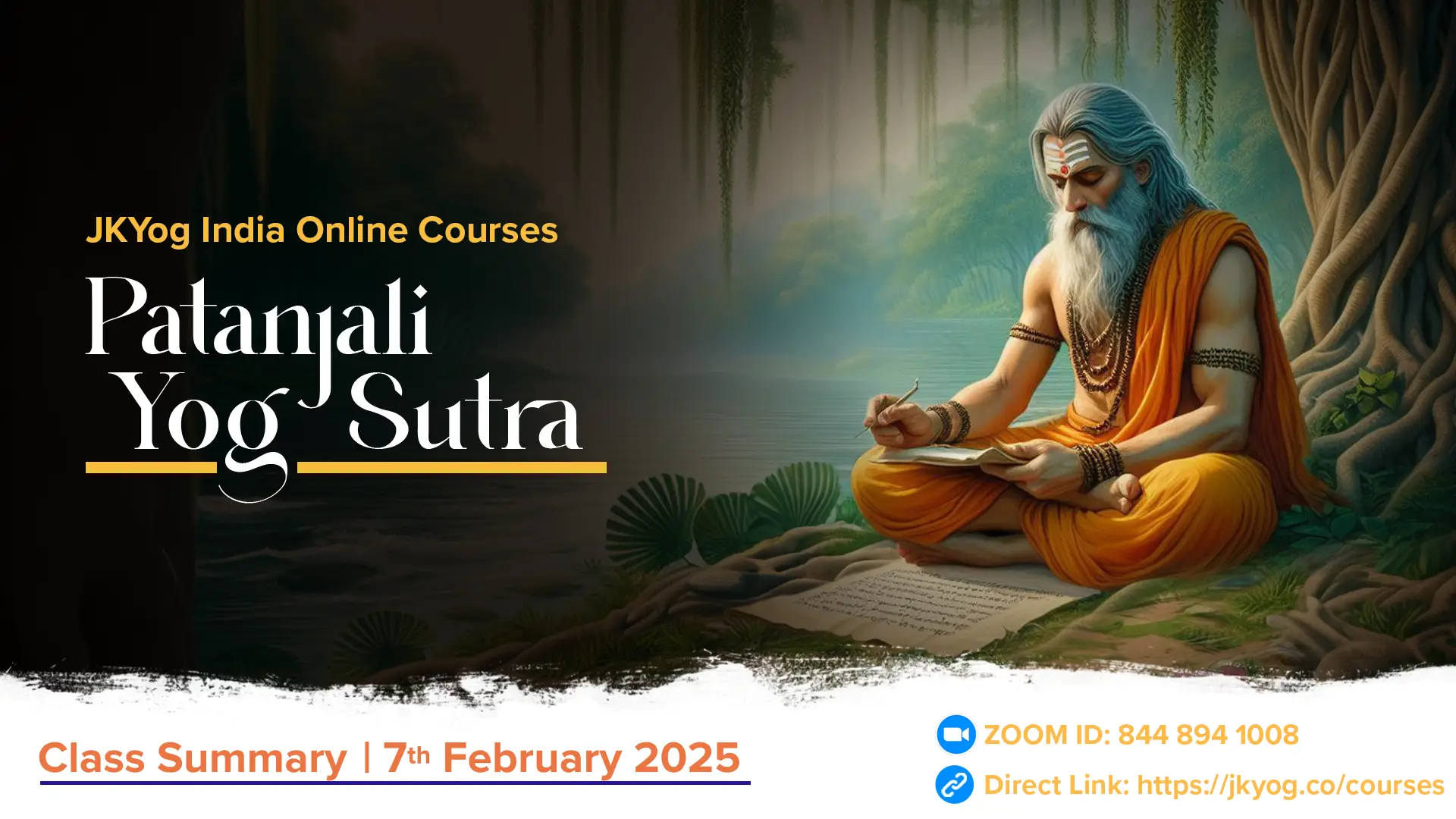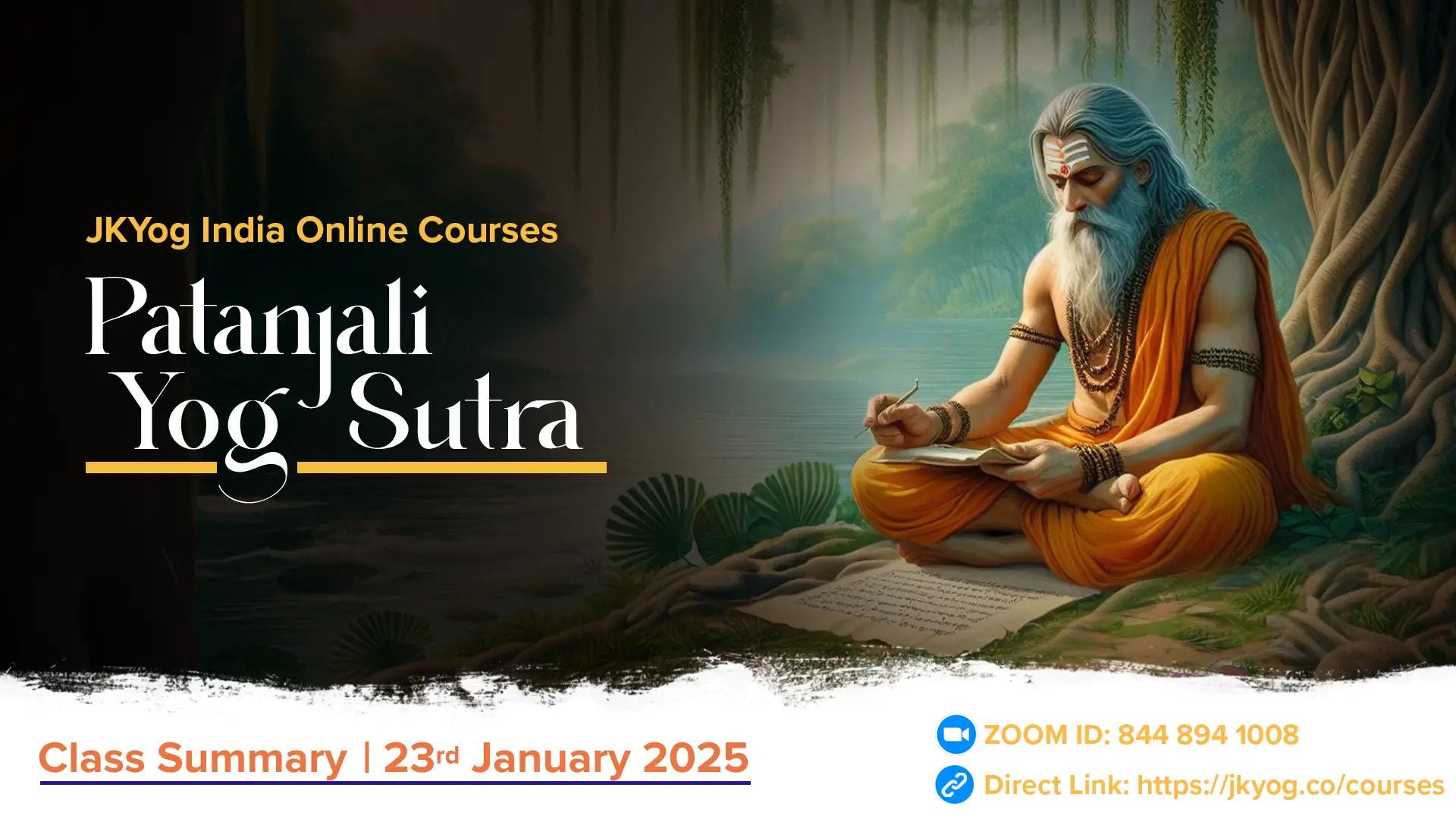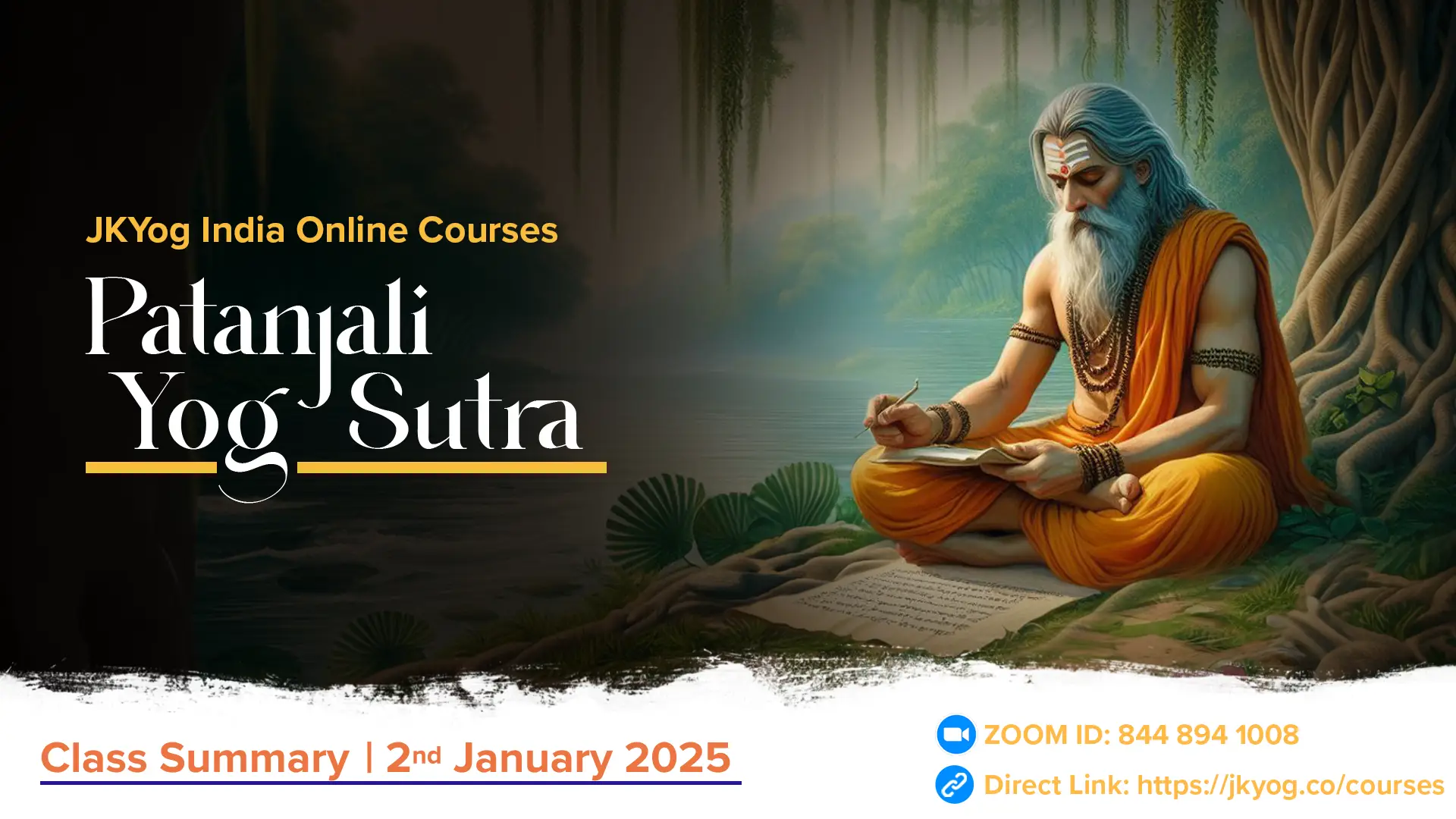तत्र प्रत्ययैकतानता ध्यानम् || 3.2 ||
tatra pratyayaikatānatā dhyānam || 3.2 ||
Translation:
Meditation (dhyānam) is the uninterrupted flow of thought on the object of concentration.
An untrained mind has a continuous flow of thoughts. There is an uninterrupted flow of thoughts on various objects. The concentration suffers and focus gets lost. No purpose is served by such dissipated thoughts
Ekāgra Chitta
Constructive actions can be done by focussing our thoughts and attention on a particular subject or particular work on hand. Particularly, in the spiritual field, concentration and meditation on one object are absolutely essential. In common language, it is called ‘ekāgra chitta’ or single-pointed concentration.
Meditation Posture
While the present sūtra gives the theory, Bhagavad Gītā explains the practical aspect of meditation.
- First, one should be seated comfortably, as recommended by the Yogasūtra also in 2.46.
- Then comes the posture of the body that is best for meditation.
- In sādhanā, there is a tendency to become lazy and doze off to sleep. This happens because the material mind does not initially get as much bliss in contemplation on God as it does while relishing sense objects. This creates the possibility for the mind to become languid when focused on God.
- Hence, you do not find people dozing off halfway through their meal, but you do see people falling asleep during meditation and the chanting of God’s names. To avoid this, the Bhagavad Gītā gives the instruction to sit erect.
Āsanas for Meditation
There are a number of meditative āsanas described in the Haṭha Yoga Pradīpikā, such as padmāsana, ardha padmāsana, dhyānvīra āsana, siddhāsana, and sukhāsana. We may adopt any āsana in which we can comfortably sit without moving, during the period of the meditation.
In His commentary on the Gītā, Swami Mukundananda ji explains the importance of posture. Some people are unable to sit on the floor due to knee problems, etc. They should not feel discouraged, for they can even practice meditation while sitting on a chair, provided they fulfil the condition of sitting motionless and erect.
Take the journey within
The external seat and posture do need to be appropriate, but meditation is truly a journey within us. Through meditation, we can reach deep within and cleanse the mind of endless lifetimes of dross. By learning to hold the mind in concentration, we can work upon it to harness its latent potential. The practice of meditation helps organize our personality, awaken our inner consciousness, and expand our self-awareness.
Secondary Benefits of Meditation
Some of the side benefits are:
- It reigns the unbridled mind and harnesses the thought energy to attain difficult goals.
- It helps maintain mental balance in the midst of adverse circumstances.
- It aids in the development of a strong resolve that is necessary for success in life.
- It enables one to eliminate bad saṁskāras and habits and cultivate good qualities.
Bhagavad Gītā, 12.8
The present sūtra recommends meditation on a single object. The best form of meditation would be a meditation on God, as said in the Bhagavad Gītā.
Give mind to God and intellect to the world
Being steeped in the material world, we always do the wrong thing. We apply our intellect on God. As for worldly things we surrender to them without analyzing. We should do the contrary.
We should surrender to God unquestionably. As for the world, we should apply our intellect and analyze the pros and cons of seeking a thing or doing an action.
The gravity of our problem is further aggravated because our intellect is habituated to this kind of defective thinking from innumerable previous lifetimes. If we run our lives in accordance with the directions of our intellect, we will definitely not make much progress on the divine path.
Thus, if we wish to achieve spiritual success by attaching the mind to God, we must surrender our intellect to him and follow his directions. Surrendering the intellect means to think in accordance with the knowledge received from God through the medium of the scriptures and the Guru.
Jiddu Krishnamurti says, “To understand the immeasurable, the mind must be extraordinarily quiet, still.”
So let us practise meditation daily and increase our devotion and surrender to God
Summary: JKYog India Online Class- Patanjali Yog Sutra [English]- 14.11.2024

